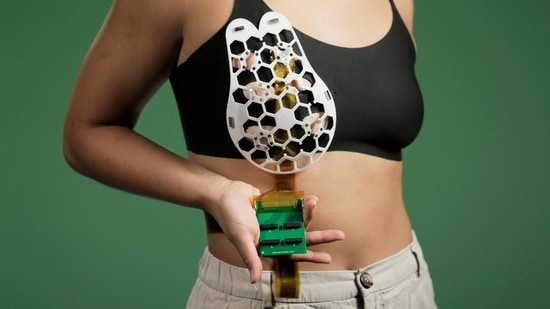
AI predicts breast cancer risk 5 years in advance: 3-year-old AI model goes viral after Anand Mahindra's tweet
8 months ago | 79 Views
A study done by Massachusetts Institute of Technology's CSAIL and Jameel Clinic in January 2021, on robust mammography-based models for breast cancer risk, is now going viral after business tycoon Anand Mahindra shared a post on X recently and tweeted, “If this is accurate, then AI is going to be of significantly more value to us than we imagined and much earlier than we had imagined…(sic).”
We all typically carry around 9,000 genetic mutations in our genomes, making us all genetic mutants to some degree though most of these mutations are benign and have little to no effect on our health yet some can severely disrupt protein function and can cause diseases such as cancer but what if artificial intelligence (AI) can accurately predict the formation of breast cancer years before it develops?
Studies have previously revealed that we inherited most of these mutations from our ancestors, but accumulate around 64 mutations during our own development, passing them on to our offspring for good measure and as we dream of having the best possible science at our fingertips, scientists from the Massachusetts Institute of Technology's Computer Science and Artificial Intelligence Laboratory (CSAIL) and Jameel Clinic for Machine Learning created a deep learning (DL) system in early 2021 to predict cancer risk in women who have no signs or symptoms of breast cancer - just from X-ray of breast or mammograms.
Viral AI Breast Cancer Model
Designed to maintain consistent predictions despite minor clinical variances (such as different mammography machines), this AI system named “Mirai” could perform better than existing risk-assessment algorithms as it predicts a patient's risk across various future time points and can incorporate clinical risk factors like age and family history if available. According to a study published in Science Translational Medicine, Mirai was trained on over 2,00,000 exams from Massachusetts General Hospital (MGH) where it is now installed and tested on held-out patients from MGH as well as Karolinska Institute in Sweden and Chang Gung Memorial Hospital in Taiwan.
MIT’s AI System 'Mirai'
Not only did Mirai maintain accuracy across different races, age groups, breast density categories and cancer subtypes but also outperformed the Tyrer-Cuzick model, identifying nearly twice as many future cancer diagnoses. The four modules in Mirai include:
- An image aggregator module first gathers and processes all conventional mammography images to construct an illustration of the mammogram.
- It then aggregates the image data from all of the views.
- If needed, a risk-factor prediction module then uses the mammography to anticipate the patient’s risk factors.
- The last stage includes an additive-hazard layer using the patient risk variables and the mammography analysis to forecast the patient’s risk annually for the following five years.
The study lead author Adam Yala from MIT in the US had then said, “There’s much more information in a mammogram than just the four categories of breast density. By using the deep learning model, we learn subtle cues that are indicative of future cancer.”
Regina Barzilay, Professor at MIT had claimed, “Unlike traditional models, our deep learning model performs equally well across diverse races, ages and family histories.”
Read Also: Cancer care in monsoon: Hygiene, nutrition, mental health tips and precautions in rainy season




















